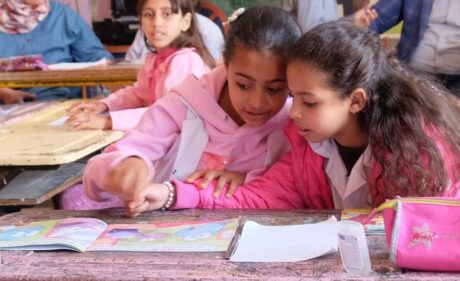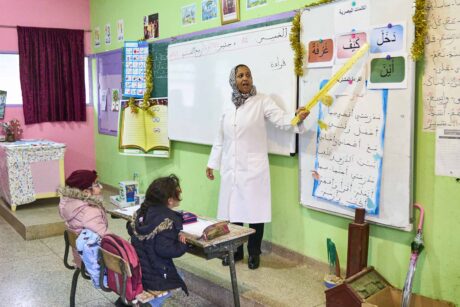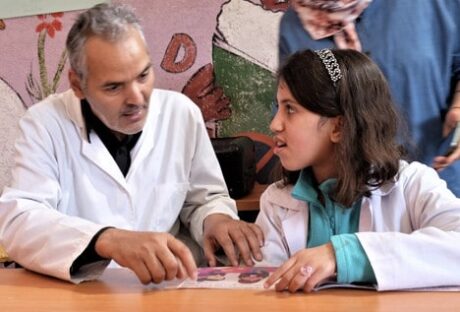When the COVID-19 pandemic closed Lina’s school in Rabat, Morocco, she feared she wouldn’t be able to keep up with her education at home well enough to graduate into middle school.
Lina, 13, is deaf. And while school closures pose challenges for all students, those with disabilities face extraordinary hurdles in accessing remote learning.
“I was so concerned. The schools closed because of the coronavirus, and we stayed home. How was I going to study?” Lina recalls. “I felt so sad … no one could teach me. My mom doesn’t know sign language.”
When the pandemic began, the Moroccan Ministry of Education created extensive online learning resources for primary school students. Without sign language interpretation, however, these lessons weren’t reaching students like Lina.
The U.S. Agency for International Development’s Reading for Success-National Program for Reading partnered with the ministry to close this gap. The program supports professional interpreters and teachers to record lessons for grades 1-6 in Moroccan Sign Language, covering all primary school core subjects. The ministry uploads the lessons to its online learning portal and broadcasts them on national television channels.
“I saw new sign language lessons on TV. Arabic, French, Islamic education, math, everything. I was so happy! I took my notebook and started copying the lessons and learning from the TV,” Lina says. “I kept writing and learning step by step.”
Since recording began in May 2020, the interpreters have produced about half of the 556 total lessons. The work continues, and the ministry expects to complete the interpretation of every lesson for grades 1-6 by July 2021.
With remote education opportunities within reach throughout much of 2020, Lina was able to complete her coursework and has started her first year of middle school.



